Он, Она, Оно? Gender in the Russian language
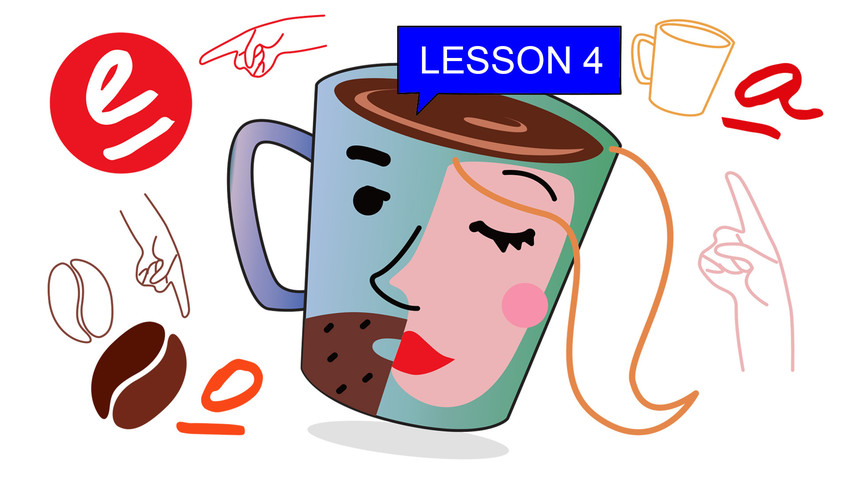
Getting started with Russian grammar, students learn one simple rule during their first class: always look at the ending of a word - it’s where the answer lies. It will tell you, how to correctly change a given word and what role it will play in the sentence. Let’s look at nouns, for example.
All nouns in Russian are divided into three main groups: male (ОН), female (ОНА) and neutral (ОНО). Their gender is defined by the form - nominative case, singular. 90 percent of male nouns end with a hard or soft consonant, while the female ones end in А/Я and the neutral uses О/Е.

Table 1. Gendering nouns
Alena RepkinaIt’s understood why the word мальчик (boy) is ОН, while девочка (girl) is ОНА - an elementary knowledge of biology comes in handy here. However, why is телефон (telephone) an ОН and a машина (car) is an ОНА? Biology is useless here, so we need to go to the rule book on this one. The rule can be memorized with the aid of simple stories and associations:
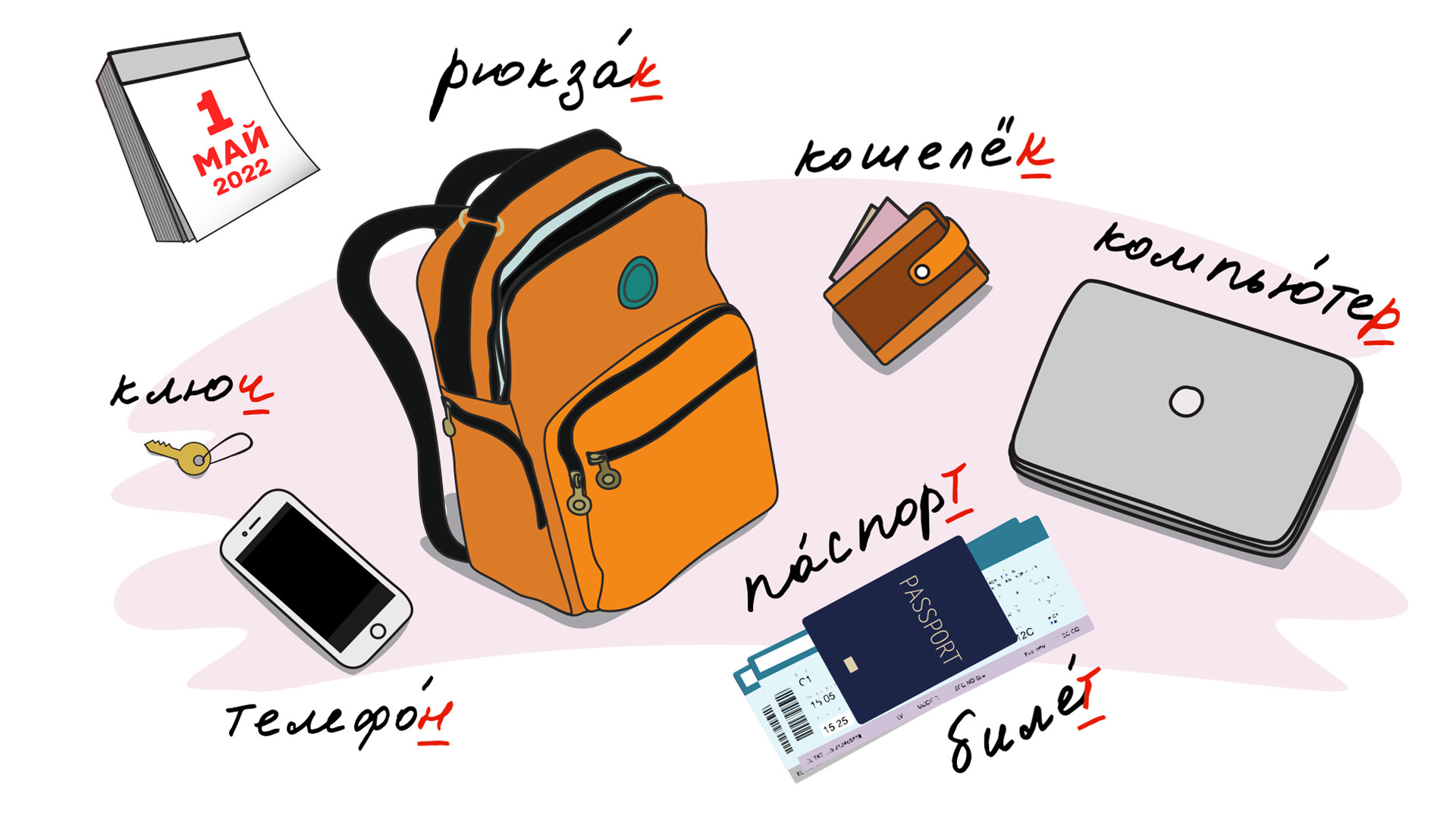
ОН - Ма́й 2022. У меня́ е́сть биле́т на самолёт. Ну́жен то́лько рюкза́к. А в нём компью́тер, клю́ч, телефо́н, и, коне́чно, па́спорт.
MALE - May 2022. I have a plane ticket. Need only a backpack. And in it my computer, keys, phone and, of course, my passport.
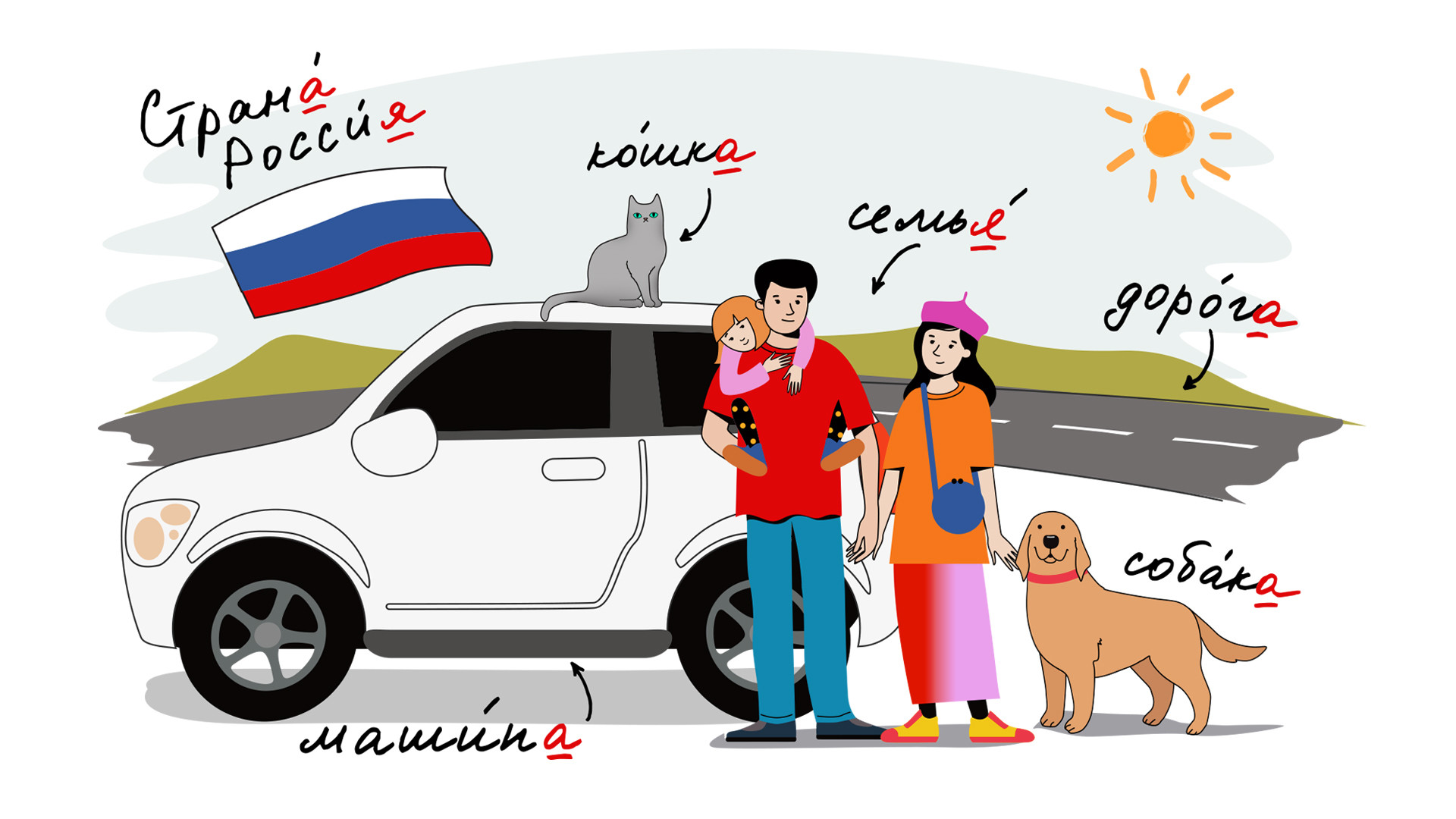
ОНА - Росси́я – моя́ страна́. Во́т доро́га, е́дет маши́на. В ней сиди́т моя́ семья́, плю́с на́ша ко́шка и на́ша соба́ка.
FEMALE - Russia is my country. Here is a road, a car is driving. There is my family in it, plus our cat and our dog.
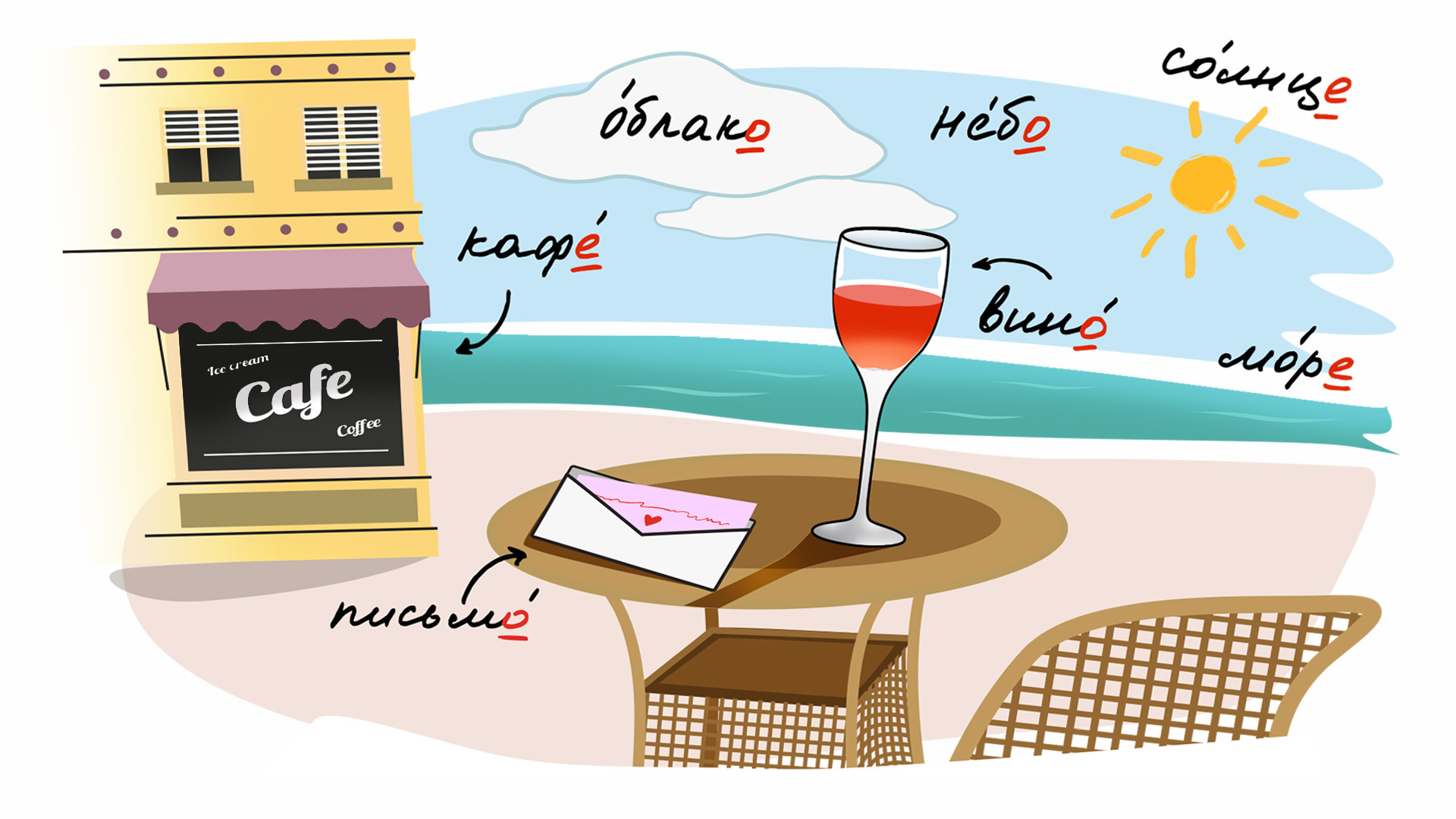
ОНО - Сижу́ в кафе́. Пишу́ письмо́ и пью́ вино́. А рядом – со́лнце, не́бо, мо́ре, о́блако.
NEUTRAL - Sitting in a cafe. Writing a letter and drinking wine. And by me - the sun, the sky and clouds.
Knowing the gender, we can easily substitute a noun with a pronoun in simple dialogues:
1) - Ты не знаешь, где ключ? (Don’t you know where the key is?)
- Вот он! На столе. (Here it is! On the table.)
2) - Ты не знаешь, где кошка? (Don’t you know where the cat is?)
- Вот она! На диване. (Here it is! On the sofa.)
3) - Ты не знаешь, где кафе? (Don’t you know where the cafe is?)
- Вот оно! На пляже. (Here it is! On the beach.)
If the noun ends in a -Ь, other rules come into play: the word can be either male or female. Only a dictionary (or a Russian-speaking friend) will be able to help out with the correct answer. In any case, you’ll need to consult your long-term memory and apply gender characteristics when confronted with nouns that end in -Ь:
4) - Где тетрадь? (Where is the notebook?)
- Вот она! В сумке. (Here it is! In the bag.)
- А где словарь? (And where is the dictionary?)
- Вот он! На полке. (Here it is! On the shelf.)
However, you can find clues here, as well. Again, look at the endings. Nouns that end in -тель and -арь are always male, while the ones that end in -адь, -ать, -ость, -чь, -жь, -шь, -щь – are female.
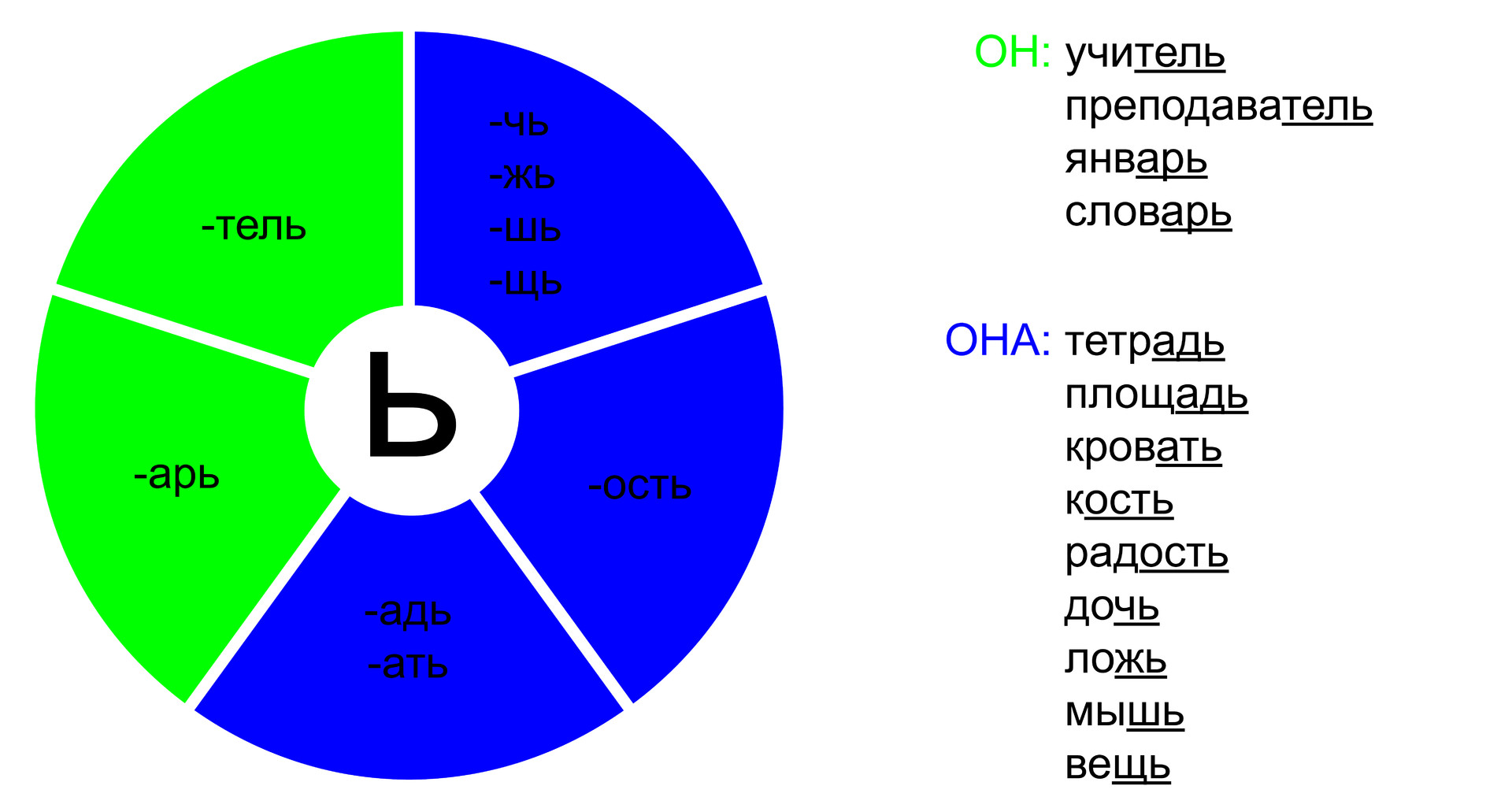
A case exists with the word кофе. Until recently, an exception applied, and, despite its -Е ending, the word was male: - Где кофе? – Вот он! Consequently, the adjectives and everything else would also be male. Even Russians themselves found the exception incredibly annoying, always being tripped up by it and automatically using the neutral gender: Ммм, какое вкусное кофе! Оно лучшее! Ой, нет, он лучший, он вкусный!; the situation even became the subject of a satirical plaque in a St. Petersburg cafe:
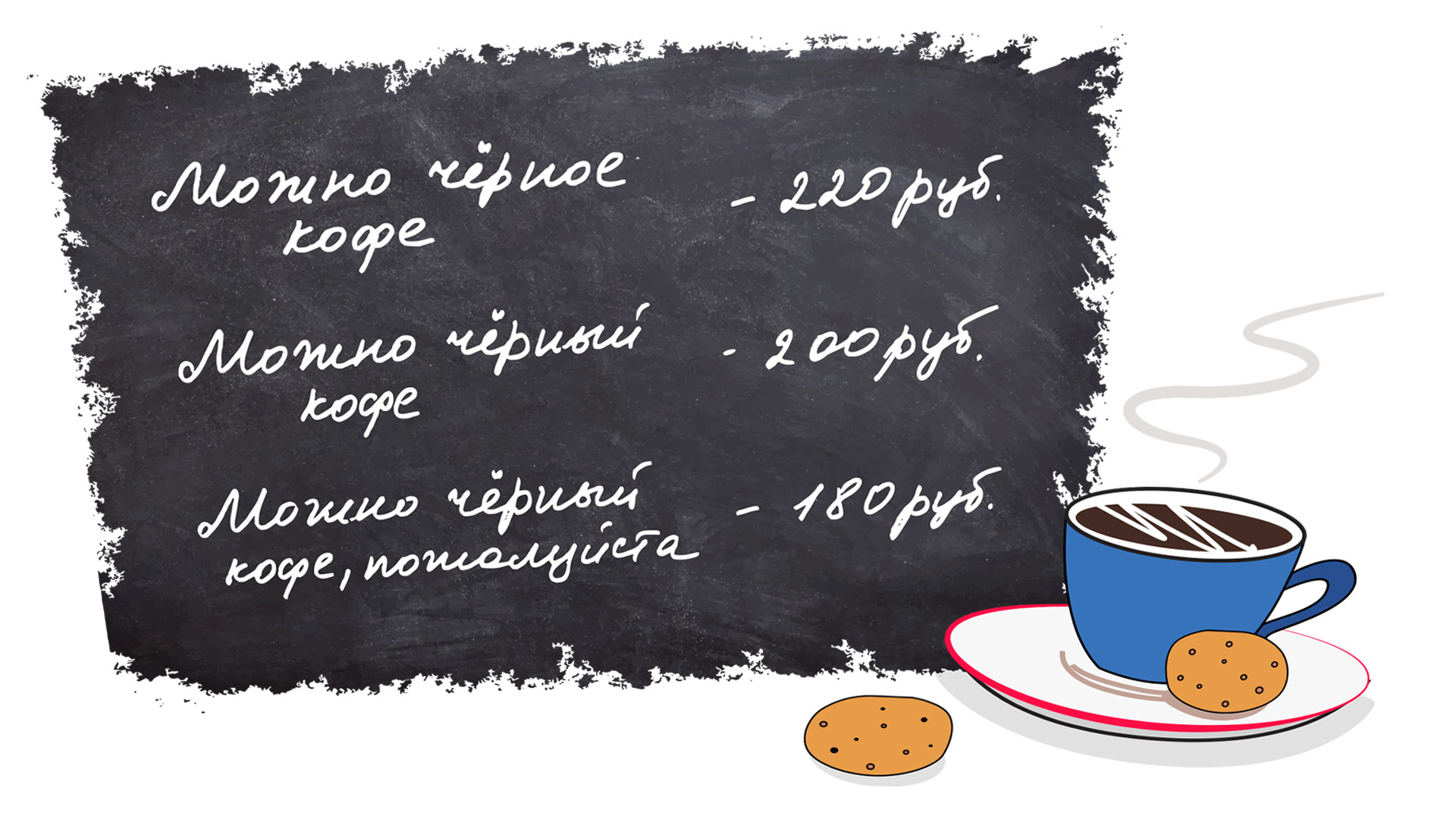
Можно чёрное кофе – 220 рублей (Can I have a black coffee (neutral) - 220 rubles)
Можно чёрный кофе – 200 рублей (Can I have a black coffee (male) - 200 rubles)
Можно чёрный кофе, пожалуйста – 180 рублей. (Can I have a black coffee (male), please - 180 rubles)
However, as recently as a couple of years ago, the language was officially changed to include the usage of кофе in neutral, so as to avoid looking like an uncultured person when you inevitably make that “mistake”!
If using any of Russia Beyond's content, partly or in full, always provide an active hyperlink to the original material.
Subscribe
to our newsletter!
Get the week's best stories straight to your inbox